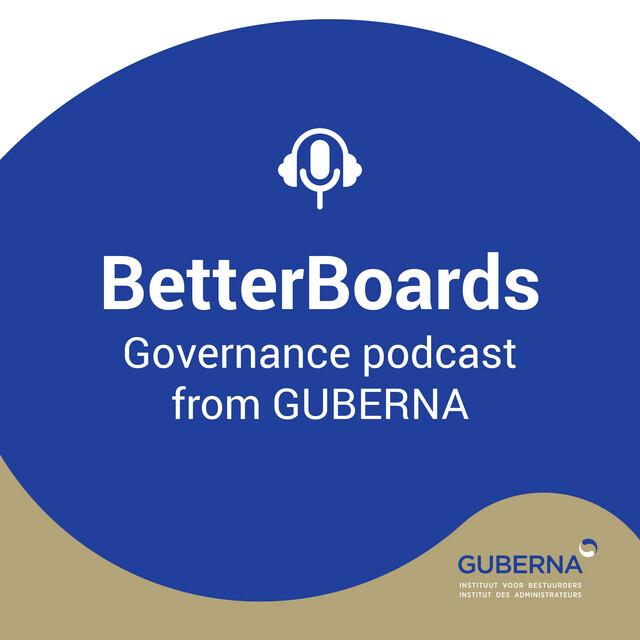Impact of Artificial Intelligence on the roles of the Board: interview with Mr. Bart De Smet (Ageas)
In June 2023, the GUBERNA Centre Listed Companies was honored to host Mr. Bart De Smet, Chair of the Board of Directors of Ageas and GUBERNA board member. The aim of this interview was to better understand the impact of technology, and in particular Artificial Intelligence (AI), on the governance of listed companies, by providing our members with the practical case of Ageas.
Recently, the advent of ChatGPT introduced Generative Artificial Intelligence to the general public. Whenever disruptive technologies appear in society they are accompanied by a mix of hope and anguish. The emergence of this new form of AI has been positioned both as a revolutionary game changer as well as a catastrophic threat to current jobs. At GUBERNA, we believe that AI will complement and not just substitute humans.
With regard to corporate governance, we thought it was appropriate to review the three roles of the board of directors: strategic, control and leadership, and to analyze the impact of AI on these roles with Mr. De Smet.
(continue reading below the podcast insert)

Discover the full podcast & video interview
Listen to the full podcast interview on Spotify or here.
Or watch the entire video interview.
Strategic role
One of the key tasks of the Board of Directors is to engage in discussions on strategy, together with the Executive management, to steer the company in a particular direction.
Artificial Intelligence is an encompassing term that requires a bit of precision. In this regard, Mr. De Smet prefers to talk about augmented intelligence, where human and machine capabilities are combined to enhance learning and decision-making. In terms of strategy for Ageas in particular and for the insurance industry in general, the impact of AI lies mainly in the area of process automation and data analysis. Concretely, AI may help to enhance predictive science (for example, the best time to repair/replace a vehicle), sharpen claim processes (to detect possible frauds) or interact with customers (through ChatBot).
Strategically, Mr. De Smet reported that the Ageas Group leaves a lot of autonomy to local entities to decide on the best products, best price or best distribution channel in line with the local market demand. Nonetheless, the corporate center provides the company with a general overview of what is happening in the field of AI everywhere (inside and outside the company) with the purpose of inspiring people. In the same vein, Ageas scans trends in the business environment to analyze which technology could have an impact on the insurance industry and to select the best innovations.
Mr. De Smet stressed that the Board should not replace the management team on this topic (in accordance with the NIFO principle -“Nose In, Fingers Out”). Indeed, the Board doesn’t need to be involved in every small detail of AI, but this new technology should be embedded in general strategic discussions. As a takeaway, Mr. De Smet recommended not to be a blind follower of hot topics, but be selective and really identify on which aspects AI may help shape the organisation’s strategic agenda.
Monitoring role
The monitoring role of the Board is to supervise and control the company's activities to ensure that they are in line with the objectives set. It includes the monitoring of financial and operational results, the oversight of strategic objectives, the internal control as well as risk management and compliance.
Concerning AI, the Board must be particularly vigilant about the risks involved. Indeed, the use of new technology can increase productivity, but it also entails risks.
For the insurance sector in particular, the use of AI may lead to a high level of rejection of uninsurable people due to the creation of an excessive number of customized profiles based on a large number of parameters without any human intervention. Therefore, there is a clear role for the Board as a “safeguard” of the company’s social responsibility towards all its clients. For companies in general, other potential threats include cyberattacks and data leakages.
In order to better grasp these risks, Mr. De Smet emphasizes the importance of the Risk Committee's advisory role. In fact, it may help identify the risks associated with AI and support the Board by organizing specific sessions on particular AI-related risks.
Leadership role
Doing business nowadays is becoming increasingly complex and requires adequate talent. A key responsibility of the Board of Directors is to ensure not only that the organization is led by a professional and competent management, but also to have skilled and up-to-date directors who can initiate progress on specific topics, such as AI.
However, this doesn’t mean that every new trend requires a newly appointed director to deal with it. Mr. De Smet believes in complementarity and diversity (in terms of knowledge, skills and experiences) in the Board to face new challenges. In his view, the key for the Board is to have a common understanding of key topics: “what are we really talking about when it comes to AI?”. The main purpose is to ensure that experts exist in the management team, and regularly request feedback from the executives. To reach this goal, Board members may engage with third parties, including external auditors, on specific subject matters to ensure that all capacities are used and all risks investigated.
